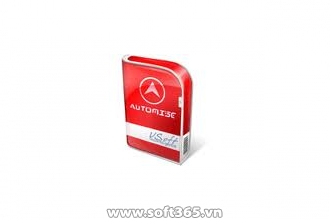Automise helps automate common administrative tasks. Automise packages hundreds of pre-written scripts into a drag-and-drop graphical interface - there's no need to concoct scripts and batch files to automate Windows administration. It features over 350 built-in actions covering file transfer, file and folder archiving, administering Windows and much more with comprehensive logging and scheduled task support.
Graphical Interface
Automise's graphical interface has been carefully crafted to balance functionality with usability. System Administrators will find automating Windows tasks in the structured graphical interface a breath of fresh air compared to scripts and batch files.
350+ Actions
Automise includes hundreds of pre-written scripts, called actions. Actions can automate file transfers; file and folder archiving; interacting with files & directories; administering Windows; and much more. You just fill in the details and Automise will do the rest.
Flow Control
Automise features Try/Catch/Finally actions which enable you to use structured exception handling in Windows automation projects. It also provides If Then, Else, Switch/Case and Loop actions for controlling the flow of your project’s execution.
Scheduling Tasks
Automise provides tight integration with the Windows scheduling service to allow automated Windows tasks to be run daily, weekly or whenever you wish.
Logging
Output from every action run in a project is recorded to a project log. These log files make it easy to find issues with your project and can be exported for automated reporting and record keeping.
Internet Actions
Your Windows automation project can automatically download and upload web content and communicate via email, ICQ, MSN and other on-line communication tools.
Scripting Support
Each Automise action exposes a number of script events, where you have access to all the properties of the action using VBScript or JScript. In addition, the Run Script action and Execute Powershell Script action allow you to perform specific tasks which might not be covered by the built in action types.
Variables
Using variables is the key to making your Windows automation projects dynamic. Use variables to pass information from one action to another and to enable actions to utilize user specific or machine specific values.




